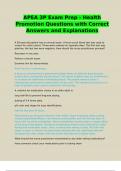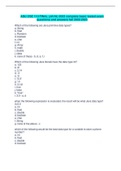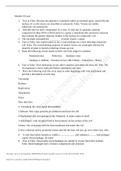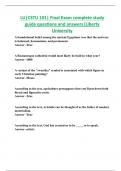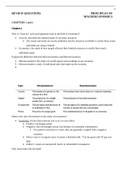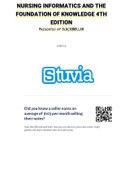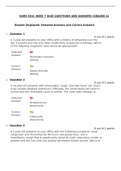Exam (elaborations)
APEA 3P Exam Prep - Health Promotion Questions with Correct Answers and Explanations
- Course
- Institution
APEA 3P Exam Prep - Health Promotion Questions with Correct Answers and Explanations A 58-year-old patient has an annual exam. A fecal occult blood test was used to screen for colon cancer. Three were ordered on separate days. The first test was positive; the last two were negative. How should t...
[Show more]
